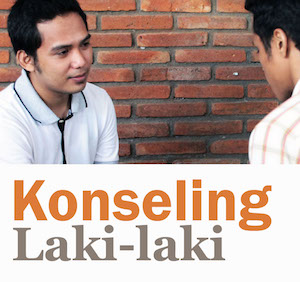Translated by Isabelle
Polygamy is a technical term for a man marrying to more than one woman at the same time. Polygamy is often held by men for some reasons which are verified by religion or based on history. Another common reason is gender based perspective, such as like men’s libido which is very high and higher than women’s and if men are not doing polygamy they will do adultery. There are also men having medical motives like infertility or a deformation of their wife but this is none of the motives which Rifka Annisa discovers in some polygamy cases.
Based on the data of Rifka Annisa WCC Yogyakarta, women take sides immediately and feel the negative consequences from polygamic marriages which are mostly made without the agreement of the first wife. It has negative psychological consequences when the second marriage is fulfilled without the agreement of the first wife. Not only for the first wife but also for the second wife and so on. Several cases show that the marriage with a second wife is made by men with the objective of getting a fake identity so that the second wife can be undamaged easier through the polygamy marriage. Besides the women, there are also the children getting the consequences of the polygamy marriage. A frequent cause of polygamy marriage is that children are not considered before the arrangement. As the result, the children often become victims of polygamous marriage.
Although it is a fact that polygamy provokes many problems within a household, this marital practice still exists. Usually because there is a norm which can be caused by a basic truth, that arises out of religion in spite of the chance of a positive law. Within fiqh Islam (product of the islamic law in former times) it is mentioned that: Firstly, polygamy is a basic marriage rule. Secondly, polygamy becomes a common rule (azimah) whose meaning expresses itself in the situation of polygamy. Thirdly, polygamy becomes a husband’s right. Fourthly, the ethic requirement is conformed to the principle of the burden of law (taklif) and is unknown to the administrative requirement. But there is one thing which is rightly criticized from the fiqh rule, namely the contradiction between the principles of justice which becomes a requirement for the practice of polygamy with justice within the fiqh law. The fiqh experts translate the principle of justice within polygamy as an issue which is made naturally, outside (all measured issues like the duty of alternation and the giving of alimony). Although the judge within the fiqh law is bound to justice, the latter is also very subjective (like the feeling of liking and not liking). If the fiqh includes the view that justice covers lahiriah and batiniah, the inside (second view), there is nobody who can legally work against his wives as it is mentioned in the letter of an-Nisa: 129 ”dan sekali-kali kamu tidak akan mampu berlaku adil terhadap isteri-isterimu sekalipun kamu berusaha keras“ (You will not be righteous towards your wives even if you have tried harder). Furthermore justice referring to the letter of an-Nisa: 3 “jika kamu sekalian khawatir tidak dapat berlaku adil, maka nikahlah satu saja…, itu lebih dekat daripada tidak berbuat zalim” (if you are very worried that you can’t be righteous, then marry one woman only…, this is good for you in order to avoid injustice among wives). This is an issue which cannot be fulfilled by men.
However in the marriage law in Indonesia (UU No. 1, year 1974) it is mentioned that: Firstly, the marital basic rule is monogamy (paragraph 3). Secondly, polygamy becomes a particular rule with the meaning that a man is allowed to practice polygamy in certain situations (paragraph 4: 2). Thirdly, polygamy won’t become a husband’s right. Fourthly, there are ethical and administrative conditions. Obviously the state tends to establish strict regulations against the practice of polygamy which differs from fiqh islam that gives men the freedom to practice polygamy. Despite these facts the state is not strict enough to impose sanctions (because there are no instruments) when there is a refusal of a regulation within law.
The Position of Rifka Annisa WCC
Polygamy which is seen from a justice perspective between men and women (gender) is a supremacy manifestation of men against women. This aspect is proven with proposing of the women’s rights for being self-determined, for example rejecting polygamy or choosing to live apart from polygamy. Besides, it is evident that polygamy provokes violence. Rifka Annisa’s study shows that there is much polygamy as well as forms of violence which are the catalyst for violence against the wife. This amount is even certainly believable, but it does not represent the entirety of the cases in Yogyakarta. The causation for the iceberg phenomenon of violence within polygamous families is certainly much bigger than the registered number of cases. When the fact that polygamy really produces disasaters for women and children is based on the principle of syaddu ad-dzariah (preventive policy) polygamy could disappear.
In the context of marriage, the effort of establishing an arrangement which is fair for everyone (men and women) becomes a guaranty. Monogamy as a marital institution which is assessed to fulfill the feeling of justice actually already becomes a basic rule for achieving a life in the household which is just and without violence. Equalization and Justice within a society are an arrangement which is aimed by all human beings of every religion.







